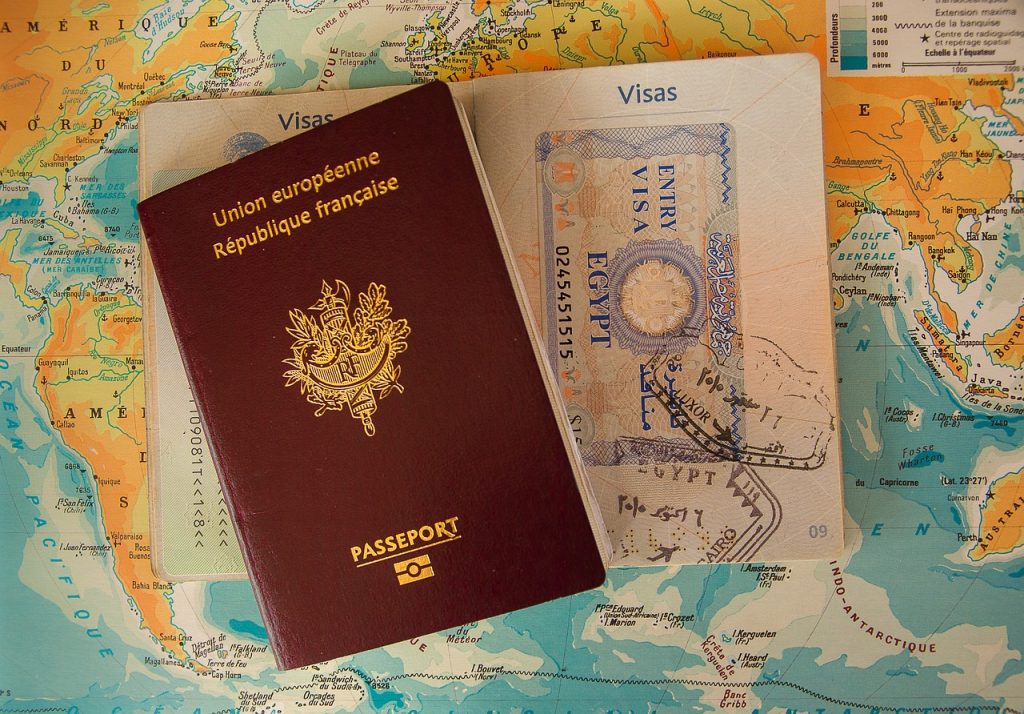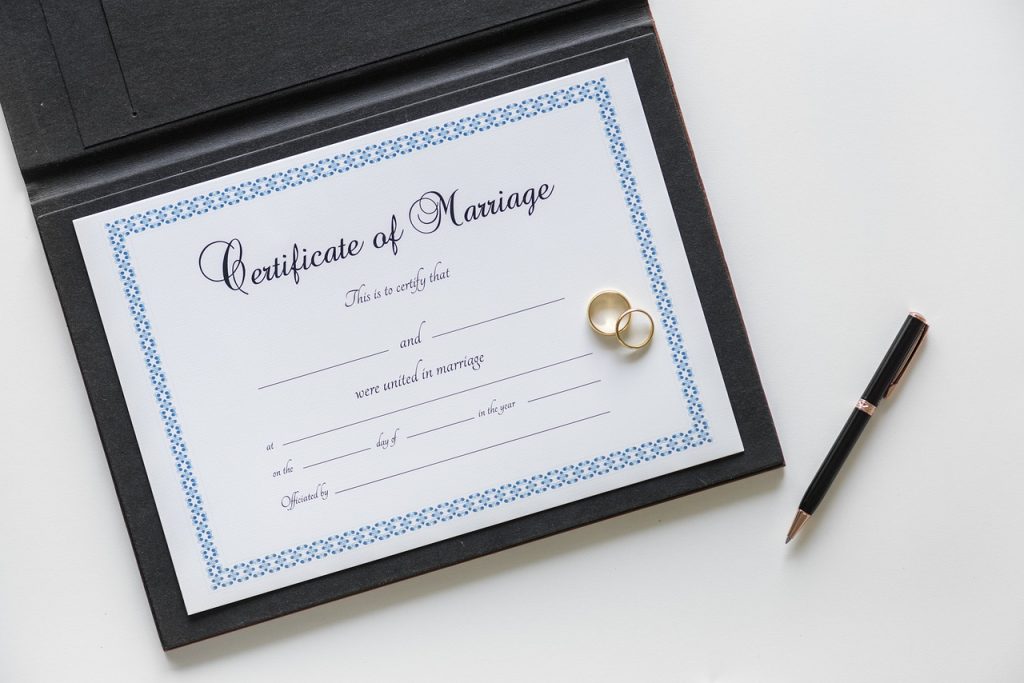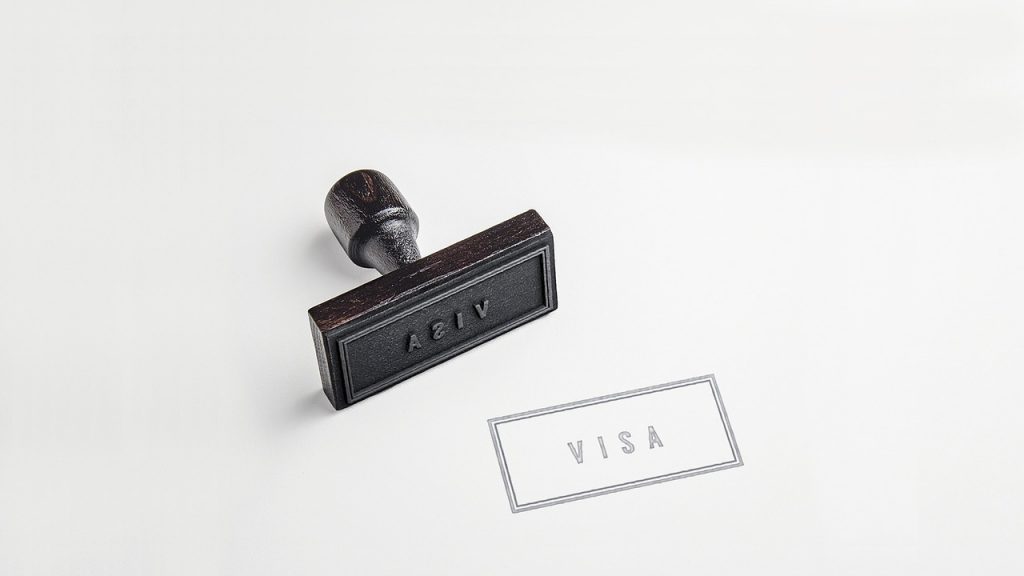Passports, Visas, and Other Diplomatic Vocabulary in Russian Posted by Maria on Sep 16, 2019 in Vocabulary
One area where you might need Russian is dealing with the embassies and diplomatic missions of Russian-speaking countries abroad. (Remember that the Russian Federation, Росси́йская Федера́ция, is not the only country where Russian is an official language.) This post will feature some vocabulary you can use when contacting diplomatic missions that use Russian, loosely grouped around diplomacy, services for citizens abroad, and services for foreign nationals.
Diplomatic Missions
A representation of one (nation) state (госуда́рство) in another can be called представи́тельство. This word is fairly broad and is not limited to diplomatic relations (дипломати́ческие отноше́ния). Any sort of representative could be called представи́тель (m.) or представи́тельница (f.) (see more on whether and how to use the feminine form here).
More specifically, an embassy is посо́льство. The ambassador is посо́л. These words are related to the verb слать, to send. Often, дипломати́ческая ми́ссия or дипми́ссия (diplomatic mission) can be used to refer to an embassy, too.
Ко́нсульство is a consulate, and ко́нсул is a consul.
Services for Citizens
What may diplomats do for the citizens (гра́ждане, singular граждани́н (m.) or гражда́нка (f.)) of their country living abroad (за грани́цей)? Let’s list some common services, keeping in mind that there may be some overlap with the services provided to foreign nationals.
- вы́дать па́спорт—to issue a passport
- noun: вы́дача паспорто́в (“the issuing of passports”)
- офо́рмить докуме́нты, па́спорт, свиде́тельство о рожде́нии, свиде́тельство о бра́ке—to issue or apply for (this verb refers to both what you ask for and what the issuer does) documents, a passport, a birth certificate, a marriage certificate
- noun: оформле́ние докуме́нтов, па́спорта…—the issuing of documents, a passport, etc.
- продли́ть докуме́нты—to extend (the validity of) documents
- noun: продле́ние
- заве́рить докуме́нты, перево́ды—to certify documents or translations
- noun: завере́ние (related to the verb верить, to believe)
- легализова́ть докуме́нты—to legalize documents (recognize them for use in a different country from the one they were issued in)
- восстанови́ть докуме́нты—to restore documents
- noun: восстановле́ние
- встать на учёт в посо́льстве—to register with the embassy
Services for Foreign Nationals
First, why would foreigners (иностра́нцы) even need to understand embassy pages in Russian? To give you an example, if you are an English speaker who wants to get in touch with the Russian embassy in Algeria (Алжи́р), you will discover that, at the time of writing, that page was only available in Russian or French. Let’s look at some common services you may need from an embassy of another nation in your country:
- пода́ть заявле́ние о + prepositional case—to apply for something (literally, “to submit an application for…”)
- запо́лнить заявле́ние, фо́рму/бланк—to fill out an application or form (2 ways of saying “form”)
- вы́дать/поста́вить ви́зу, разреше́ние—to issue (2 variants) a visa or a permit
- noun: вы́дача
- продли́ть ви́зу—to extend a visa
- вы́дать вид на жи́тельство—to issue a residence permit
Have you ever need to deal with diplomatic missions that used Russian as their working language? How did it go? What could we add to this post?

Build vocabulary, practice pronunciation, and more with Transparent Language Online. Available anytime, anywhere, on any device.






